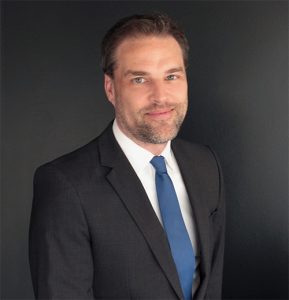Institute for Plastic and Aesthetic Surgery
Institute for Plastic and Aesthetic Surgery
The Institute for Plastic and Aesthetic Surgery at the Glückstadt Clinic deals with functional, cosmetic, shape-changing and reconstructive procedures.
In this area, surgical procedures are performed for both aesthetic and functional reasons.
In order to work as a doctor in this field in Germany, you must complete training as a specialist in plastic and aesthetic surgery.
Career
After completing his medical studies at the University of Kiel, Dr. Bönke initially worked there and completed basic surgical training in cardiac and vascular surgery at the Schleswig-Holstein University Hospital in Kiel. In 2015, he then switched to the clinic for plastic and hand surgery with a center for severe burns at the St. Georg Hospital in Leipzig. In 2017 he followed Prof. Dragu to the University Hospital in Dresden, where he played a key role in founding the Department of Plastic and Hand Surgery, where he most recently worked as senior physician. Since 2023 Dr. Bönke leads together with Prof. Dr. Said the Institute for Plastic and Aesthetic Surgery at Glückstadt Hospital.
Since 2015 Dr. Bönke works exclusively in plastic and aesthetic surgery. In addition to the reconstruction and restoration of the body shape using free tissue transfer and hand surgery, he specialized in body shaping and tightening operations after weight loss.
Dr. Bönke is a specialist in plastic and aesthetic surgery and a member of the German Society for Plastic, Reconstructive and Aesthetic Surgery (DGPRÄC). He also has an additional qualification in hand surgery.
Indications
Abdominoplasty / tummy tuck
thigh lift
upper arm lift
body lift
liposuction
Liposuction for lipoedema
scar corrections
Local flaps
(Free flap plastics)
Hand Surgery:
Secondary tendon reconstruction
Tendon transfer / tendon rearrangement
Nerve sutures / nerve reconstruction / nerve transplant
Annular ligament release in tendovaginitis stenosans (snap fingers)
extensor tendon cleavage
Nerve decompression (e.g. carpal tunnel, loge de gyon, sulcus ulnaris)
Ganglion
M. Dupuytren
Was unsere patienten sagen
Unsere Patienten erleben medizinische Spitzenqualität in einem exklusiven Ambiente. Persönliche Betreuung, modernste Technik und luxuriöse Patientensuiten schaffen eine Atmosphäre, die den Klinikaufenthalt neu definiert.
Lesen Sie, was unsere Patienten über ihre Erfahrungen berichten.
WHAT OUR PATIENTS SAY
Our patients experience top-quality medical care in an exclusive setting. Personalized care, state-of-the-art technology, and luxurious patient suites create an atmosphere that redefines the hospital experience.
Read what our patients say about their experiences.
CE QUE DISENT NOS PATIENTS
Nos patients bénéficient de soins médicaux de haute qualité dans un cadre exclusif. Des soins personnalisés, une technologie de pointe et des suites luxueuses créent une atmosphère qui redéfinit l’expérience hospitalière.
Lisez ce que nos patients disent de leurs expériences.
COSA DICONO I NOSTRI PAZIENTI
I nostri pazienti beneficiano di cure mediche di altissima qualità in un ambiente esclusivo. Assistenza personalizzata, tecnologie all’avanguardia e suite di lusso per i pazienti creano un’atmosfera che ridefinisce l’esperienza ospedaliera.
Leggi cosa dicono i nostri pazienti delle loro esperienze.
LO QUE DICEN NUESTROS PACIENTES
Nuestros pacientes reciben atención médica de primera calidad en un entorno exclusivo. Atención personalizada, tecnología de vanguardia y suites de lujo crean un ambiente que redefine la experiencia hospitalaria.
Lea lo que nuestros pacientes dicen sobre sus experiencias.
OUR Hospital AND DOCTORS ARE LICENSED AND SUPERVISED BY



OUR Hospital AND DOCTORS ARE LICENSED AND SUPERVISED BY





